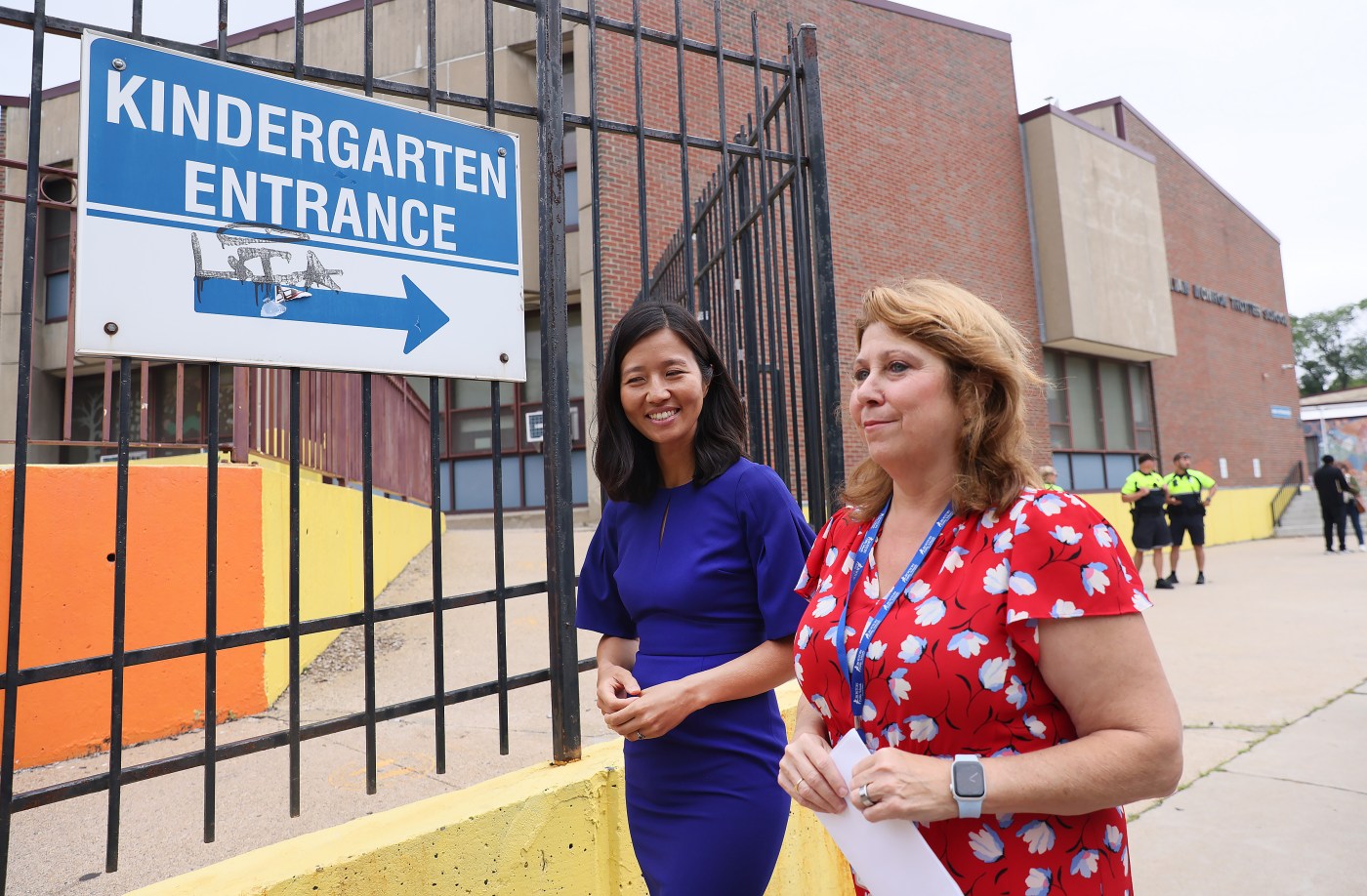
Boston City Council votes to approve $1.5B school budget over concerns: ‘We have failed our society’
The Boston City Council begrudgingly approved the mayor’s $1.5 billion budget for the public school district while citing a litany of concerns over inadequate facilities, underperformance and an ever-growing list of violent incidents.
The City Council approved the Boston Public Schools budget via a 10-3 vote Wednesday, after delaying action the prior week, with many of the councilors who voted in favor giving credit to Superintendent of Schools Mary Skipper for making strides to improve a bad situation in the district.
“I do have a good working relationship with the school superintendent, who I respect, and I do think she’s doing a good job under very difficult, challenging circumstances — she’s doing the best she can,” Councilor Ed Flynn, who voted in favor, said. “In my opinion, we do have a struggling system that doesn’t work.”
The BPS budget, approved by the School Committee in March, is the largest single expenditure in the city’s $4.6 billion operating budget for fiscal year 2025, and has been subject to scrutiny in the months leading up to the final vote by Council — despite being heralded by district leadership as “transformational.”
The budget marks the cut-off of federal COVID-era funding and a 45% increase in city funding to partially offset the loss. One of the cost-saving tradeoffs involves cutting roughly 480 positions, or 4% of district-funded positions, a decision that has been criticized by parents, educators and school community members.
The Boston Municipal Research Bureau, a fiscal watchdog group that released a memo criticizing the school budget process in February, said in a Wednesday social media post that declining enrollment and increased expenses — the year-over-year increase for BPS spending is 5.6% – is expected to drive the projected cost per student to more than $30,000 in fiscal year 2025.
Councilors bashed BPS for transportation problems around on-time school bus performance, chronic absenteeism, student safety and underperformance by students, with Erin Murphy, a former BPS teacher, asserting that less than 30% of third-grade students are reading on grade level.
“We have failed our society and I just want that on record before we take a vote on this budget,” Murphy, who voted in opposition, said.
Councilors Julia Mejia and Liz Breadon also voted against the budget.
Councilors also pointed to what they saw as the district’s lack of progress on its Systemic Improvement Plan, an agreement signed two years ago with the state education department that mandated that the district create a comprehensive plan to address aging and faulty infrastructure.
They further spoke to the uncertainty around a subsequent Long-Term Facilities Plan, put forward by the school superintendent and mayor, that laid out plans for future school mergers, closures, reconfigurations and new builds to address those infrastructure issues — which at one point was reported by the Boston Globe as laying out closures for half of district schools, an analysis disputed by Skipper.
“I, like everyone else, was surprised when we have all this planned for closings and mergers and reconfigurations, and we get, you know, and what’s presented to us is actually a very slim list,” City Council President Ruthzee Louijeune said. “I actually do support the idea of under-promising and over-delivering, because for too long, our students and our schools have been delivered false promises.”
Gregory Maynard, executive director of the Boston Policy Institute, criticized the Council’s vote to approve the BPS budget over a litany of concerns.
“With just a year left on the Systemic Improvement Plan, student enrollment is declining, there is no plan or timeline or budget for students to get modern classrooms and facilities, and many of the academic goals remain unmet,” Maynard said.
Still, the day’s discussion was not all negative.
Councilor Gabriela Coletta Zapata spoke favorably of the mayor’s efforts to implement aspects of the Green New Deal into schools and of cuts that would start to decrease the “bloated central office’s budget.’
Sharon Durkan, another councilor, spoke to the “indisputable” benefits of a BPS education, saying, “I know all these benefits come with their own challenges, whether it be infrastructure improvements, staffing challenges and more. The hurdles are all the more reason to invest boldly in the ways outlined in this budget.”
Mayor Michelle Wu said she was grateful to the City Council for its vote to approve the school budget.
“Most of all, I value our shared focus on working for Boston students and their families to have every possible opportunity,” Wu said in a statement. “Under Superintendent Skipper’s leadership, we are rebuilding the systems, facilities, and partnerships to support our educators and make a difference for every student and school community.”

